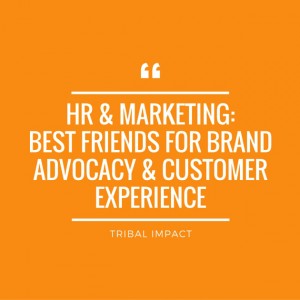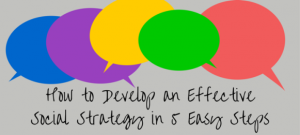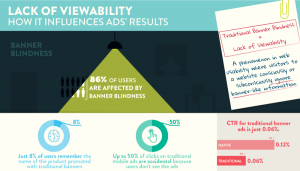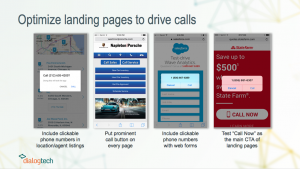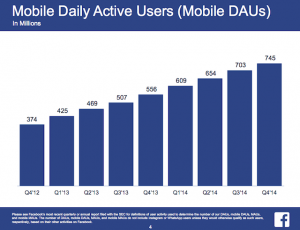Selecting the right web design partner for your firm’s website redesign can be a challenging task. While proposals play a role in the process, interviewing and asking the right questions can provide you with the insight needed to better inform your selection decision.

In no particular order, we’ve come up with a list of “20 questions” to ask a potential web design and development partner before choosing who will handle your firm’s next website redesign:
1. What is the full breadth of your capabilities?
Websites are arguably the greatest marketing asset that a company possesses. Therefore, selecting a redesign partner that understands marketing at a high level is critical. Also, website redesign projects often involve much more than just web design and web development. In fact, you’ll likely need the services of marketing strategists, content strategists, copywriters, photographers, videographers, etc. It’s essential to hire a firm that has most, if not all, of these capabilities in house and can provide them on an as-needed basis.
2. Do you have any experience in my industry and with similar websites?
While this may not seem overly important, if your firm operates in a unique or complex industry, the learning curve required for a redesign partner to get up to speed might be too steep (or costly). Just like hiring an employee who has previously worked in your industry is a benefit, choosing a redesign partner with industry experience is advantageous as well. But at the same time, look for a partner that has experience in other industries, too. While a partner that exclusively works in your industry may provide great insight, they may not be able to bring best practices and ideas gleaned from working in other industries.
3. How can you help me drive website traffic and generate leads?
Demand and lead generation are critical components of a website redesign. Whether B2B or B2C in nature, you want (and need) your website to drive traffic and help generate new business leads. Understanding how web design firms take this into account throughout the process—from strategy, planning, content, design, development and launch—is going to be helpful.
4. How will you optimize my website for search engines?
Search engine optimization (SEO) has changed dramatically over the last several years. What was once a highly technical exercise is now much more about creating the content that your audience is searching for online. But there are technical best practices that should be implemented and can make or break your SEO. So be sure to ask for each firm’s approach to SEO and seek to understand how they’ll ensure your website has both the right content AND the right technical optimizations.
5. Do you practice responsive web design to ensure a consistent and usable experience on all devices?
With few exceptions, responsive web design is the Google-recommended (and industry-recommended) best practice for building a website that is not just mobile friendly, but “friendly” and optimized to create a consistent and ideal user experience for all devices. Understanding how each firm approaches responsive design throughout the entire process will be insightful and perhaps eye opening.
6. Will my website be fully custom or a “customized” theme?
There are a lot of websites out there masquerading as custom websites but they’re merely pre-built themes that have been customized for a particular client. Budget limitations may require using such themes; however, if you are paying for and expecting to receive a fully custom “stick-built” website, it’s critical that you ask this question. A fully custom website means that every pixel of design and layout has been performed by the firm and the website has been “hand coded” by a qualified developer.
7. What aspects of my project will be performed in-house vs. outsourced?
Understanding what portions of your website redesign will be or won’t be performed in-house is another important consideration. While certainly not a deal-breaker, having to leverage third-party vendors for pieces (or the entirety) of a website redesign project can add complexity, cost and scheduling challenges. If a potential partner plans to use outside support, it’s important to know who they’ll be using and what portions they’ll be working on.
8. What content management system(s) do you recommend and why? Can you show us a demonstration?
Most web development companies have their personal preferences for particular content management systems (CMS). But it’s beneficial to understand why a web design firm recommends a particular CMS platform and what the pros and cons are of that platform. Be sure that the strengths of the platform you choose align with the needs and functionality requirements of your website.
Many clients assume that a CMS website will function the same on the back end, regardless of who you partner with to develop the website. However, the back-end design of the CMS interface and the administrative functionality often varies greatly. So it’s helpful to request a website demonstration to better understand how customized and intuitive the CMS of their websites are. After all, your company will be using this feature the most, so it’s imperative that it is easy to use for your team.
9. What kind of testing and quality control checks do you perform prior to the launch of a new website?
Testing is a critical process that should be completed prior to launching your new website. It’s absolutely essential for your website to render smoothly on various browsers and devices, so your web design partner should conduct cross-browser testing on the latest versions of Chrome, Firefox, Safari and Internet Explorer, as well as cross-platform testing on the latest versions of iOS and Android for tablets and smartphones. It’s also important that your partner follows a checklist of internal quality assurance measures to ensure that all bases are covered before launch.
10. How long will the project (realistically) take?
The length of a website project varies greatly depending on scope, complexity, schedule and both the client and web design partner’s ability to hit deadlines. Based on an understanding of your project needs, a potential web partner should be able to give you an estimate of how long a project like yours typically takes and provide a basic schedule for key project milestones. They should also help you understand what factors can affect the schedule and where issues typically arise.
11. What is your web design and development process?
Process plays a major role in the design and development of a website and process can vary greatly from company to company. Every web design company has developed their own internal process that guides their projects and some are better than others. Knowing what the process is, how it gets implemented and how it will ultimately impact you and your project is helpful to understand. It’s also important to know who will be involved in the project and what each person’s role will be.
12. What will be required of our company throughout the project?
Successful websites are not built independent of the client. And while you are clearly hiring an outside agency to design and build the site, understandably there will be work required on your part to get the project completed. Going in, it’s beneficial to know what will be required of you and your company, from a resources, time commitment and deliverables aspect.
13. Can you work within our budget parameters?
While many firms are hesitant to share budget information with a potential web development partner, it’s useful for them to know for several reasons. Think of it like sharing your budget with a realtor. If they don’t know your budget, they won’t know what kind of house to show you. It’s important to understand whether or not a potential web partner can work with the budget you have and include as many or all of your wish list items within those parameters.
14. What’s included in your price?
Every company prices websites differently, so understanding what the pricing includes AND doesn’t include is vital. At the end of the day, you want to understand what you’re getting for your money, what additional costs may come up along the way that are accounted for in the proposal and how they’ll handle estimating and billing for things that fall outside of the scope. When it comes to billing, no one likes surprises, so be sure to gain a clear understand of the pricing before signing a contract.
15. Can you provide client references?
Last but not least, it’s always a good idea to talk with a potential partner’s previous website redesign clients to get a better understanding of the company. What was it like to work with them? How did the final product turn out? How successful has the website been? What (if any) pitfalls should you be aware of? Speaking directly with previous clients is a great way to round out your due diligence and gain a more complete picture of your potential redesign partner.
Determining who is best equipped to build your website, as well as choosing who you want to partner with on the project goes far beyond their mere capabilities and expertise. That’s where asking great questions and listening for great answers is key to the selection process.
(202)



